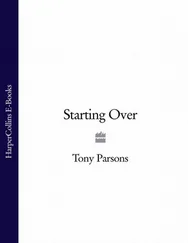“This is very nice of you, Marva. I’m sure we’d both love to come.”
“Wonderful. We’ll look for you around noon. Dinner will be three or four.”
“Fine.”
“It’s just a family thing, mainly—the kids and us, and Max’s father’s coming up. Maybe a few others who don’t have anywhere to go.”
“Like me and Marilyn?”
“My, but we’re sensitive today!”
“Sorry, Marva. Listen, it sounds swell. Be seeing you Thursday.”
Potter picked up Marilyn a little after eleven. He hadn’t eaten breakfast and thought he might have some toast and coffee at her place, but Marilyn had mixed a batch of martinis, and he didn’t want to turn one down after she’d gone to the trouble. Alcohol, he rationalized, had calories, therefore it must have food value. Martinis were no doubt a nourishing breakfast.
They each had two, and arrived at the Bertelsens’ with a fine glow.
The Bertelsen kids, eleven-year-old George and nine-year-old Daphne, rushed to the door and started tugging at Potter and Marilyn’s coats, vying for the honor of carrying them to the bedroom.
“They’re all wound up,” Marva explained, “because of Thanksgiving.”
“Of course,” Marilyn smiled.
Potter nodded his own understanding, as the kids’ yelping pierced to his brain.
Max, calm and gracious as always, was in the living room pouring champagne for the guests already assembled. There was his aged father, a bony little man who was Harvard Law School, Class of ’13; Phyllis Merton, a fortyish woman who had recently lost her husband to a teenage hair stylist; Phyllis’s daughter Lucille, who was in her freshman year at Goddard and evidently hating every minute of it, to judge by the doomed expression she wore; Seth Ramikanandra, an economist from New Delhi who was studying at the Harvard Business School; and Raymond Cloudweather, a genuine American Indian on scholarship at Brandeis.
Potter was impressed, as always, by Marva’s ability to assemble just the right crowd for the right occasion. She would never have brought this group together for a cocktail party honoring some literary or academic figure, or to raise support for a political candidate. Yet in an odd way it was just right for Thanksgiving, perfectly fitting that particular holiday’s mystique, which called for a huddling together of stray souls who somehow have survived their circumstances thus far, and need to be stuffed and reassured before being sent on their way again out in the cold. The divorced lady and the Indian-Indian were pretty standard staples at such gatherings, but the American Indian was a real plum, a coup for Marva. You could always dig up sad divorced ladies with depressed daughters, and in the Cambridge-Boston milieu Indians from India were a dime a dozen, almost interchangeable as far as Potter could tell, with their gleaming little teeth and shiny bronze skin, their immaculate Western attire and clipped English accents, speaking inevitably of weighty world matters, as if participating in some endless, marathon version of Meet The Press. But a real American Indian—that was hard to find, and the demand was overwhelming. Now that every serious intellectual household had its copy of Bury My Heart at Wounded Knee , the trapping of a real Sioux or Pawnee descendant as a dinner guest was a real achievement, especially on Thanksgiving. The irony of it all, the attempt to make social reparation—it was perfect.
Cloudweather seemed, like the few other American Indians Potter had chanced to meet, more inscrutable than any Oriental. Silent and contained, he answered questions politely, monosyllabically, his expression set and rarely altering. He sat stiff and upright, sipping a glass of apple juice. He had refused champagne, and Potter wondered if he thought of it as “firewater.” Potter was then ashamed of himself, and tried to strike up a conversation with Cloud-weather, hoping to put him at ease.
“How do you like Brandeis?” Potter asked him.
“Very well,” he replied.
Phyllis Merton, grasping at this straw, turned to her glum daughter with feigned brightness and said, “Brandeis. You thought of going there. Didn’t you, Lucille?”
“No.”
“Oh. Maybe I’m thinking of Barnard. I know there was one that started with a ‘B.’ That you were thinking of applying to.”
Lucille shrugged.
“Maybe it was BU,” Marilyn offered.
“That starts with a ‘B’ all right,” Potter said. He swilled down the remains of his champagne, feeling the need for harder stuff. Marilyn gave him a sharp poke in the ribs with her elbow, a signal to behave.
“How’s your teaching going, Phil?” Max Bertelsen asked.
“Oh, just fine,” Potter said.
Ramikanandra turned toward him with an expression of polite interest, and asked, “At where are you a professor, sir? Harvard or MIT?”
“I’m not a professor, I’m an instructor,” Potter said. “I teach at Gilpen Junior College.”
“So? I fear, from my ignorance, it is not an institution with which I am familiar.”
“It is one of many institutions of higher learning that exist in the greater Boston area besides Harvard and MIT.”
“Doubtless, I’m sure,” said Ramikanandra with a broad smile of condescension. Potter itched to put the little foreign bastard in his place, but luckily Max’s father cut in. “Anyone mind if I go turn on the game?” he yelled at the room in general.
“Of course not, Father,” Max said. “Anyone who wants can go watch the game—we won’t be eating for a couple of hours. TV’s in the library.”
“Oh!” Phyllis Merton said. “Is there a game on? What game is on?”
Max’s father looked at her as if she were insane. “There’s always a game on Thanksgiving Day,” he said. “The Thanksgiving Day Game.”
“Of course,” said Phyllis, “the Thanksgiving Day game. I’ve heard of that one.”
Marilyn finished off her champagne and whispered quietly but fiercely in Potter’s ear, “Get me a real drink, for godsake.”
Potter got up, excused himself, and went to the kitchen. Marva was fussing around, and, from the looks of things, getting in the way of the cook. The kids were there too, peeking into pans, sticking fingers into pots. Potter poured himself a giant Scotch, and got a glass of gin and ice for Marilyn. He couldn’t find any vermouth, so he just dropped an olive in, to give it the respectable look of a martini.
When Potter returned to the living room, Ramikanandra was discoursing on the Gold Standard in his sing-song, bright-toothed monotone, and Potter slipped off to the den to catch a bit of the Thanksgiving Day Game. Max’s ancient father was waving his fist in excitement. He turned to Potter and told him the Packers were leading the Lions 7–3. It turned out Max’s dad was a big Packers fan.
“That Lombardi, he’s a real man. One of the last real men. Should have gone into politics. But look at that ball-club of his.”
Potter was somewhat confused, since Lombardi had died the past August, and had left Green Bay to coach at Washington the year before that; but he figured the old man merely meant that the Packer club was still part of Lombardi’s heritage.
“Look at that Hornung, will ya!” the elder Bertelsen croaked with delight. “Look at ’im go!”
Potter moved closer to the screen, wondering exactly what the old chap was looking at. Hornung had retired some years ago. Perhaps they were showing a re-run.
“But they better watch out for the Lions’ Bobby Layne—oh, he’s a sly one!”
Potter finally realized that Max’s old man was watching the game that was being played live that day, but inserting coaches and players of the past; he had them on the right teams, but in the wrong era. Mr. Bertelsen was about a decade out of synch.
Читать дальше












